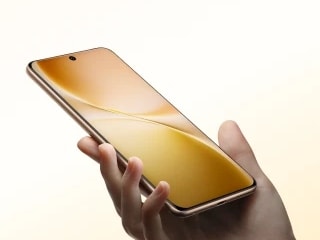- Home
- Mobiles
- Mobiles Features
- Samsung Galaxy Note 7 Fires Risk Hurting Demand for Other Products
Samsung Galaxy Note 7 Fires Risk Hurting Demand for Other Products

Kong Tse has seen first-hand how the global uproar over flammable Samsung Galaxy Note 7 smartphones is playing out with consumers. The 26-year-old, who hawks devices in the warrens of Hong Kong’s Wanchai Computer Center, says sales of the company’s handsets have tumbled 30 percent since the controversy began, including the high-end S7 Edge.
“Once betrayed, eight times avoided,” says the tousle-haired salesman, invoking a local saying while leaning against the counter in a tiny shop for Well Go Telecom. “They’ve lost a lot of trust.”
(Also see: Samsung Galaxy Note 7 Recall: Samsung Suffers Backlash in China Over Response)
Kong’s experience suggests the debacle with Samsung’s Galaxy Note 7 battery fires may reverberate beyond a single product line and jeopardize a brand the South Korean company has spent billions to burnish. Investors will find out more about the fallout on Friday, when Samsung reports earnings for the first time since the crisis began. The Korean company had originally aimed for a Thursday release.
Galaxy Note 7 sales will undoubtedly fall short of original projections. Since the recall, six analysts surveyed by Bloomberg have cut estimates on Galaxy Note 7 shipments this year by an average of 38 percent to 8 million units, from an original 13 million. Several said they were waiting to gauge the impact on Samsung’s other products, from washing machines to the flagship Galaxy S7.
Samsung has worked hard to limit the damage. The Suwon-based company moved quickly to recall more than 2.5 million Galaxy Note 7s after the battery troubles emerged and has already begun shipping replacements to key markets, such as Korea and the U.S. Still, Samsung has lost momentum against key rivals such as Apple Inc. and Huawei Technologies Co. The troubles appear particularly challenging in China where customers and government-owned media railed about the country’s exclusion from the recall, which they saw as discriminatory.
(Also see: Samsung Says Over 1 Million People Using 'Safe' Galaxy Note 7 Globally)
“The Galaxy Note 7 impact will last for a while, especially in China where so many good phones are flooding out,” said Lee Seung Woo, an analyst at IBK Securities Co. in Seoul. “Samsung may shed market share further in China and the Galaxy Note 7 impact will possibly spill over to its other product line-ups on the mainland, considering the recent public uproar.”
Samsung got more competition Tuesday as Alphabet Inc.’s Google unveiled its new Pixel smartphones. The devices will run on the Android operating system, the same software Google supplies to Samsung and others, and will compete with Samsung’s phones at the high end of the market. Its shares stood little changed in Seoul trading.
Kong isn’t alone in seeing a drop in sales. Four other stores in the same mall, traditionally a magnet for electronics shopping, reported sales of Samsung devices were down between 30 and 80 percent. While two blamed a slowing Chinese economy for draining business, others said consumers had been spooked by the incessant media reports. I-Mobile salesman Ken Wong, 24, said he’d been knocking a few hundred Hong Kong dollars off the shelf price to move Galaxy Note 7s. All were mostly bereft of customers on a Tuesday afternoon.
In Singapore, that other Asian hub for electronics, several two-story-high banners still proclaim the Galaxy Note 7’s superiority at a popular mall on the island’s eastern coast. But the long lines that accompanied the phone’s August launch have vanished with the device pulled off shelves, with no word on when sales might resume. Local wireless operator StarHub’s “What’s Hot” counter displayed Oppo, Huawei, LG -- no Samsung.
“My thinking is when you have such a big company like Samsung, they will solve the problem,” said Kho Lok Hui, an elderly window-shopper checking out a rival SingTel outlet with his wife. “But I’m worried about the fire hazard. Sometimes I am tired and I charge my phone when I go to bed. I don’t want to wake up at night and say, ‘It’s very warm!”’
The investment community is betting the crisis will blow over soon despite the consumer anxiety. Many Korean analysts credit Samsung with a swift response, though consumers complained about confusing policies in different markets. Phones make up just half its business: the company leads the world in memory chips and displays, prices for which have stabilized over past quarters and continue to drive growth. After losing more than $20 billion in market value over two days in early September, Samsung’s stock was a mere 4 percent below its Aug. 23 record after Tuesday’s close.
Still, the crisis means Samsung will probably post its slowest pace of quarterly profit in more than a year. Just over a month ago, the South Korean conglomerate was riding high on a wave of glowing reviews for its priciest phone, coming off its best quarterly operating profit in more than two years. But after rushing to get the jump on the iPhone 7, Samsung realized some of the millions of devices it pushed out housed overheating-prone batteries, prompting airlines and regulators to ban its use.
“The global perception of Samsung’s brand and quality has taken a slight knock,” said Neil Mawston, executive director at Strategy Analytics Inc.
The Korean company will release only preliminary operating earnings and revenue this week, steering clear of divisional breakdowns before a full report card in late October. Analysts however figure the Korean company must set aside upwards of $1 billion to replace about 2.5 million phones across the world.
Profit is expected to have inched 3 percent higher to 7.6 trillion won ($6.9 billion) in the third quarter, while sales probably dipped 1 percent to 51 trillion won, according to estimates compiled by Bloomberg. But six analysts surveyed by Bloomberg News have already slashed their quarterly mobile profit expectations by more than 1 trillion won on average.
Much hinges on whether revamped Galaxy Note 7s now hitting the market manage to stay out of trouble. Samsung resumed selling a modified device over the weekend, and said last week that more than 60 percent of phones with faulty batteries had been replaced in South Korea and the U.S. It’s looking into reports from recent Chinese customers that new phones -- thought to be fault-free because they use a different battery-- had burst into flame.
“If further cases are spotted, consumers’ mistrust will spread to other Samsung products. And that will also determine the shares as well,” said Song Myung Sup, a Seoul-based analyst at HI Investment & Securities Co.
Kim Hak Soon, for one, is philosophical about the way everything’s turned out. The 28-year-old manager of a KT Corp. store in downtown Seoul’s Jonggak Station, said sales so far haven’t been as bad as he’d feared. “Some still worry about the potential exploding of the newly modified phones but everything’s going smoothly so far.”
Catch the latest from the Consumer Electronics Show on Gadgets 360, at our CES 2026 hub.
Related Stories
- Samsung Galaxy Unpacked 2025
- ChatGPT
- Redmi Note 14 Pro+
- iPhone 16
- Apple Vision Pro
- Oneplus 12
- OnePlus Nord CE 3 Lite 5G
- iPhone 13
- Xiaomi 14 Pro
- Oppo Find N3
- Tecno Spark Go (2023)
- Realme V30
- Best Phones Under 25000
- Samsung Galaxy S24 Series
- Cryptocurrency
- iQoo 12
- Samsung Galaxy S24 Ultra
- Giottus
- Samsung Galaxy Z Flip 5
- Apple 'Scary Fast'
- Housefull 5
- GoPro Hero 12 Black Review
- Invincible Season 2
- JioGlass
- HD Ready TV
- Laptop Under 50000
- Smartwatch Under 10000
- Latest Mobile Phones
- Compare Phones
- Samsung Galaxy A07 5G
- Vivo Y500i
- OnePlus Turbo 6V
- OnePlus Turbo 6
- Itel Zeno 20 Max
- OPPO Reno 15 Pro Mini 5G
- Poco M8 Pro 5G
- Motorola Signature
- Lenovo Yoga Slim 7x (2025)
- Lenovo Yoga Slim 7a
- Realme Pad 3
- OPPO Pad Air 5
- NoiseFit Pro 6R
- Xiaomi Watch 5
- Acerpure Nitro Z Series 100-inch QLED TV
- Samsung 43 Inch LED Ultra HD (4K) Smart TV (UA43UE81AFULXL)
- Asus ROG Ally
- Nintendo Switch Lite
- Haier 1.6 Ton 5 Star Inverter Split AC (HSU19G-MZAID5BN-INV)
- Haier 1.6 Ton 5 Star Inverter Split AC (HSU19G-MZAIM5BN-INV)


















